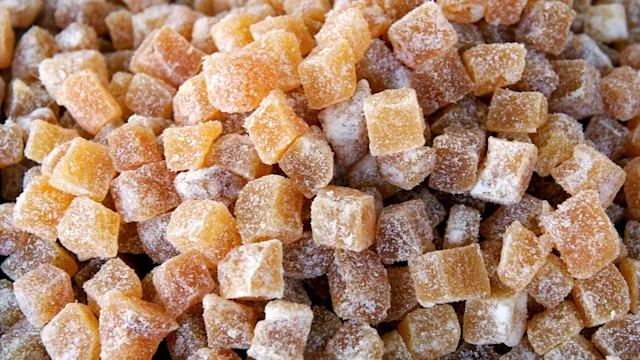Key takeaways:
Some carbonated beverages — like sweetened soda — are associated with decreased bone density. This can increase your risk for osteoporosis and bone fractures.
A lot of research has looked into which ingredients in soda are doing the most harm. So far, research suggests that added sugar and phosphoric acid are the ingredients to blame.
It’s unlikely that carbonation by itself is bad for your bones. According to current studies, sparkling water has no impact on bone or dental health.
Grocery shelves have exploded with new types of carbonated drinks. These include flavored seltzer waters, “functional” drinks like probiotic sodas, and traditional sodas with inventive new flavors. And, for a low cost, you can even make your own carbonated drinks at home.
A third of all non-alcoholic beverages purchased in the U.S. are carbonated drinks. But how does all that carbonation impact your health? There has been concern that carbonation is bad for bones in particular.
So, in this article, we explain the impact of all that fizz and your risk of osteoporosis.
Why do people believe that carbonation is bad for your bones?
For years, research has linked sugary beverages with changes in bone health. More specifically, higher intake of sweetened beverages is linked with lower bone mineral density and higher risk of bone fractures.
Many of these sweetened beverages are sodas. And since sodas are also carbonated, researchers have wondered if the carbonation is also contributing to the effect on bones.
Carbonation is created by dissolving carbon dioxide (CO2) in a liquid under pressure. This creates that characteristic fizz when you open a carbonated drink. There are many different types of carbonated drinks. But, in general, many carbonated drinks contain:
Water
CO2
Sweetener (sugar, natural sweetener, or artificial sweeteners)
Flavoring
Artificial colors
Some type of acid
There’s a lot of overlap between sugary beverages and carbonated beverages. But they’re not always the same. And so researchers have tried to figure out which specific ingredients were impacting bone health.
What does the research say about carbonation and bone health?
A large review study looked at close to 125,000 people to understand the connection between sugar-sweetened beverages and bone health. Researchers found that drinking more of these beverages was linked with lower bone mineral density. This increases the risk for bone fractures and osteoporosis later in life.
In this study, sugar-sweetened beverages included carbonated and non-carbonated drinks. The ingredients in drinks that were determined to be bad for your bone health were:
Added sugar
Phosphoric acid
High acidity
Is sparkling water good for you? There are many types of carbonated water on the market these days. Our experts explain how to choose the ones that are good for you.
Medications that affect your bone health: Many medications can increase your risk for osteoporosis. Learn which ones are the most common.
The truth about artificial sweeteners: Many people drink diet soda as a healthier alternative to soda. But is it actually healthier?
Each one of these characteristics affects bone metabolism in their own way. But in general, they all tend to lower calcium absorption. The authors also noted that people who drink lots of sugary drinks may also tend to consume less milk, fruits, and vegetables. So this may contribute to poorer bone health too.
Different types of carbonated drinks
But what about carbonated beverages without the above ingredients, like sparkling water?
In another large study, researchers looked further into different types of carbonated drinks. They compared dark sodas (colas) to other carbonated drinks. They found a few key results that added a little more information to the picture:
Sparkling water is OK. Carbonated drinks, like sparkling water, didn’t have a negative effect on bone health.
Cola affects bones in women. There was a strong link between drinking dark soda (cola) and lower bone mineral density in women in particular. This effect wasn’t seen in men.
All cola seems to have a negative impact on bone health. That’s true for regular cola, diet cola, and decaffeinated cola. Researchers think that the phosphoric acid found in dark colas may interfere with absorption and digestion of calcium in the body. But it's still unclear exactly which ingredient in colas is harmful for bone health.
It’s not about milk. The effect of cola on bone health is unlikely because people who drink cola drink less milk. It’s more likely a direct effect of cola’s ingredients on bone metabolism.
Read more like this
Explore these related articles, suggested for readers like you.
All that’s to say, it’s unlikely that carbonation is to blame for lower bone density.
Is carbonation bad for your health in general?
Carbonation is probably not bad for you. There’s no evidence that sparkling water with nothing added to it has serious health risks.
But because of the fizziness, it can cause bloating and make you feel full faster. So, people with acid reflux or gastroparesis may choose to avoid carbonated drinks because it can make their condition worse.
Is carbonation bad for your teeth?
Carbonation itself doesn’t negatively impact dental health. Both the phosphorus and sugar found in many carbonated beverages can have a negative impact on dental health. Scientists think that sugary beverages can change the environment in your mouth, which promotes bacterial growth and cavities.
What should you look for in a healthy drink?
Most adults need somewhere between 9 and 13 cups of water per day. But for many people, plain water can get boring after a while. And so many people are looking for drinks to satisfy both their thirst and their health needs. But with all the new products in the grocery aisles, it can be tough to navigate all the health claims.
To help you choose a healthy drink, pay attention to the following ingredients:
Sugar: A 12 oz soda can pack upward of 10 teaspoons of sugar. This is an entire day’s worth of added sugar (according to dietary guidelines). Juices and sports drinks can also be just as high in sugar. Opt for drinks without any added sugar. Or buy smaller cans and enjoy them once in a while.
Additives: Besides checking the sugar content, some people also try to avoid artificial colors or artificial sweeteners. Check the ingredients’ list for phosphorus or phosphoric acid — the ingredients associated with a harm to bone health.
Supplemental ingredients: Some beverages also add ingredients with potential health benefits, like probiotics or vitamins. Not all of these health claims have been researched. But it may be something you consider in making the best choice for you.
Caffeine: It isn’t always obvious when a drink contains caffeine or not. Be sure to check sodas and other carbonated beverages for added caffeine, especially if they claim to help with energy. For most adults, it’s best to keep caffeine consumption below 400 mg per day — 2 to 3 cups of coffee — to avoid negative health effects.
And of course, it’s also important to consider the taste. Food and drinks should be enjoyed. And it’s OK to enjoy an indulgent drink every once in a while.
Remember that a lot of the research on the potential risks of certain drinks is based on regular consumption. If you’re working on cutting back, aim for 3 or less sugary sodas per week. Researchers noted the risk was greater when people drank more than this amount.
The bottom line
Carbonation is a process that adds CO2 to a drink. Some carbonated beverages, like soda, are associated with lower bone density and fractures. Added sugars, phosphorus, and the acidity of these drinks are likely to blame for negative impacts on bone health. But simple water with carbonation (like sparkling water) doesn’t seem to have this risk. So, if you enjoy the fizz, consider sparkling water instead of soda.

Why trust our experts?


References
Ahn, H., et al. (2021). Sugar-sweetened beverage consumption and bone health: A systematic review and meta-analysis. Nutrition Journal.
Barajas-Torres, G. C.,et al. (2022). Effects of carbonated beverage consumption on oral pH and bacterial proliferation in adolescents: A randomized crossover clinical trial. Life.
Centers for Disease Control and Prevention. (2023). Rethink your drink.
Innova Market Insights. (2024). Carbonated drinks market: Consumer insights and preferences in the US.
Katherine, T., et al. (2006). Colas, but not other carbonated beverages, are associated with low bone mineral density in older women: The Framingham Osteoporosis Study. The American Journal of Clinical Nutrition.
ScienceDirect. (n.d.). Carbonated beverage.
U.S. Food and Drug Administration. (2024). Spilling the beans: How much caffeine is too much?


















